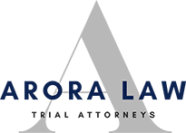Practice Areas
Federal Conspiracy Attorney
What is A Federal Conspiracy Attorney
Conspiracy charges can be daunting and complex, leaving those accused feeling overwhelmed and uncertain about their future. However, understanding how prosecution is proven in court, the importance of evidence, potential defenses, possible penalties, and the impact of plea bargains can provide clarity and reassurance. Furthermore, recognizing the role of a skilled federal conspiracy attorney in navigating these complexities can significantly affect the outcome of your case. Such an attorney can offer expert guidance on strategic legal moves and ensure that your rights are protected throughout the judicial process, ultimately aiming to achieve the most favorable result under the circumstances.
How Does Prosecution Prove Conspiracy in Court?
In conspiracy cases, the prosecution must establish that two or more individuals agreed to commit a crime and took at least one overt step towards its completion. This agreement doesn’t need to be formal; it can be inferred from actions and communications. For the prosecution, he challenge often lies in proving the existence of this agreement and the intent behind it. Prosecutors may rely on a mix of direct and circumstantial evidence, including communications between defendants, financial transactions, and the behavior of the parties involved.
Challenges in Proving Intent in Conspiracy Cases
Understanding someone’s intent can be particularly challenging in conspiracy cases, where the nuances of what was going through a person’s mind at the time of the alleged conspiracy are scrutinized. This makes proving intent in conspiracy different and more intricate compared to other crimes, such as white-collar crimes or drug trafficking. In these cases, involving experienced criminals, doubts about whether someone truly intended to commit the act play a pivotal role during the jury trial. This complexity is often dissected and cross-examined by both federal prosecutors and defense attorneys, underlining the importance of having a skilled attorney. Such an attorney must be adept at navigating the challenges presented by case law and criminal prosecution, and arguing convincingly on your behalf. When your freedom is at stake, it’s essential that your narrative is conveyed clearly and persuasively in court, including the intricacies of proving intent.
Understanding Your Defense in a Conspiracy Case
Facing conspiracy charges is daunting. However, these real-life examples might shed light on how to effectively apply defenses to your case:
- Innocent Presence: If you attended meetings where illegal plans were discussed but you didn’t agree to join, this could show you weren’t part of the conspiracy. It’s one thing to be in the room, it’s another to be part of the plot.
- Lack of Knowledge: Proving that your involvement was only in legal activities and that you were unaware of any criminal plans can illustrate you had no intention to conspire. Sometimes, what you don’t know can indeed help you.
- Active Withdrawal: Evidence that you withdrew your support – whether by informing the authorities or stopping communication with those involved, can significantly support your defense. Showing you’ve distanced yourself from wrongdoing is a step in the right direction.
- Coercion or Duress: If you were forced into a conspiracy under threat or duress, presenting proof of these pressures is critical. Nobody should be held accountable for actions they were compelled to take.
Understanding how these scenarios apply to your situation is key to building a strong defense against conspiracy charges. Each defense requires a strong legal strategy and compelling evidence to be effective.
Pre-Trial Motions: A Key Strategy in Conspiracy Defense
Before a trial begins, there’s a powerful tool that can shape its course – pre-trial motions. These legal maneuvers allow for challenging the prosecution’s evidence or even the basis of the charges themselves. Think of it as setting the rules of the game before it begins. Successfully arguing these motions could mean key evidence against you isn’t used in court, or sometimes, that charges are dropped altogether. That’s why it’s vital to work with a federal conspiracy attorney who knows how to effectively use pre-trial motions to your advantage, aiming for the best outcome from the get-go.
How Important is Evidence in A Conspiracy Case?
Evidence is the cornerstone of any conspiracy case. It links individuals to the alleged conspiracy and demonstrates their involvement and intent. Types of evidence can range from physical items and documents to digital footprints and witness testimony. The strength and relevance of evidence presented can significantly influence the outcome of a case. Therefore, it’s crucial for defense attorneys to meticulously analyze the prosecution’s evidence and counter effectively.
What are the Possible Penalties?
The penalties for a conspiracy conviction can be severe and vary depending on the nature of the intended crime. They may include imprisonment, fines, probation, and restitution. The specific consequences depend on factors such as the crime’s severity, the defendant’s role in the conspiracy, and their criminal history. Understanding the potential penalties is crucial for defendants to grasp the seriousness of the charges they face.
What Impact Do Plea Bargains Have on Conspiracy Charges?
Plea bargains can play a significant role in the resolution of conspiracy charges. In some cases, defendants may agree to plead guilty to a lesser charge in exchange for providing information on co-conspirators with the hope of receiving a reduced sentence. While plea bargains can offer a path to lesser penalties, they require careful consideration and legal advice to ensure that defendants make informed decisions about their cases.
If you are confronting conspiracy charges, it is imperative to acknowledge the significance of obtaining proper legal representation. A proficient federal conspiracy attorney from Arora Law can markedly affect the outcome of your case by providing expert guidance through every phase and ensuring that all decisions are made with a comprehensive understanding of the implications. Do not navigate this challenging situation alone, contact Arora Law today to review your options and discuss your case in detail.
Our Practice Areas
Drug Offenses
As soon as you are arrested or discover you are under investigation, the clock is ticking. To ensure the best possible outcome in your drug case, you need to act quickly and hire a criminal defense firm that is experienced, knowledgeable and able to protect your rights during even the toughest litigation.

Appeals
When you decide to launch an appeal, every moment is critical. Criminal statutes have strict time limits on appeals, so you need to act quickly and hire an appellate attorney who is experienced, knowledgeable and willing to efficiently and effectively review the entire court order of your case.

Criminal Defense
At Arora Law, we handle all criminal law cases that include DUI charges, drug charges — from small-quantity possession to large-quantity manufacturing — and white collar crimes such as fraud and forgery.

DUI Defense
A conviction for driving under the influence (DUI) becomes part of a permanent criminal record that follows you for the rest of your life. At Arora Law, we understand that serious offenses such as DUI call for serious litigation.

Expungement
When someone is arrested in Georgia the impact could remain long after the case is closed. If a case is not closed out properly, it could lead to issues with employment, housing, financial loans, educational tuition and the like.

White Collar Crime
At Arora Law, our attorneys have the experience and legal expertise in protecting clients’ rights and reputations when they’ve been charged with white-collar offenses. As former prosecutors, we anticipate how the prosecution will build its case, enabling us to build a strong defense against harsh penalties.






